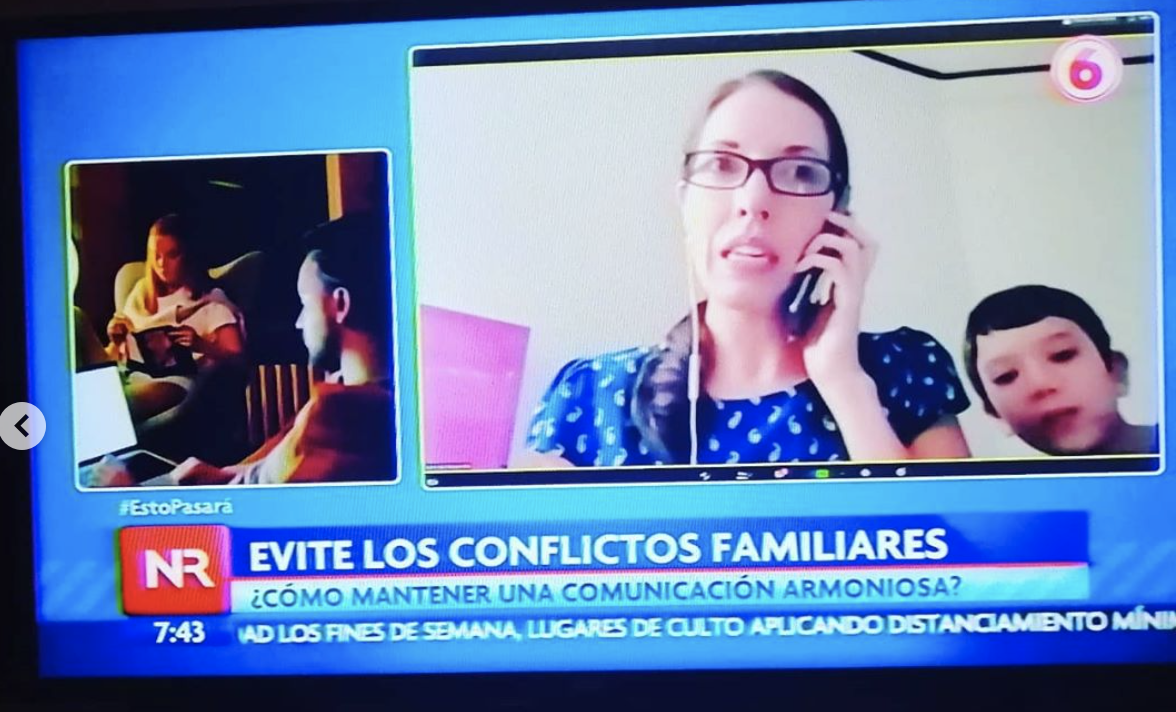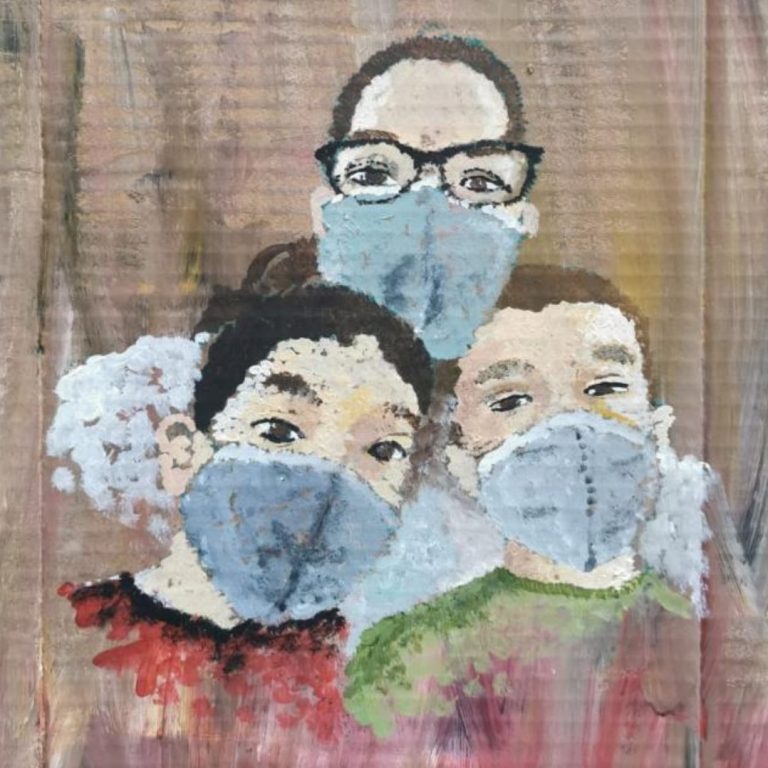Claire is the Representative for IIRP Latin America. She is based in San José, Costa Rica.
What about the "restorative practices thing"?
When people ask me about this “restorative-practices-thing” that I am always talking about, I usually make a summary – unfair as all summaries are – that goes a little bit like this:
(1) Restore the value of the person. Michael White said it well: the person isn’t the problem; the problem is the problem. To separate deed from doer helps us to honor each person’s dignity, even when we disagree or even disapprove certain behaviors
.
(2) Restore the value of relationships. Healthy relationships are those in which people acknowledge each other and recognize how we all deserve to be respected and considered capable. Of course, we must always keep in mind the individual’s external and internal resources and circumstances. Besides being capable, we are worthy of love and belonging. In a healthy relationship, we support the person and at the same time recognize their abilities, their autonomy and give them the opportunity to show their own capabilities.
(3) Restore community trust. I understand community as a group of people brought together by a circumstance, goal or project in common. Community trust can only happen when there is a regular exercise of shared participation, active listening, transparency and clear expectations. We actively choose to participate in our communities – whether they are a family-community, a job-community, a school-community, a neighborhood-community – when we trust that we are going to be heard and that there is transparency in the way decisions are made. Community trust requires commitment, communication, flexibility and continual work.
To me, that represents restorative practices: the person + the relationships + community trust.
Well, the pandemic came to our lives and my family-community life went into crisis. Getting along within confinement is hard and especially when working schedules are mixed up with caring for children. I am going to describe my own personal situation: I am a single mom of two boys, and we’ve had weeks that were good and weeks that were disastrous. What about this “restorative practices thing”?
I learned – and continue to learn – the following (not mastering it yet, but each day a little better than the day before):
1. There are going to be bad days. My sons and I can learn from the good days, but even more from the bad days. Those days when we all lost our patience, or we didn’t get to do all that we wanted to do. It’s okay to recognize that some days didn’t turn out okay. It is important to make time together and talk about it with compassion and hope: “Today we didn’t do very well, huh? Tomorrow we can do better. What can we learn from today?”
2. Engage kids in the constant change. I do not mean to ask them for permission or to consult with them about everything that happens. I also do not mean to saturate them with grown-up information. As the grown person, it is my job to offer my kids safety and stability: they need to experience that I am committed to their protection and that I will do my absolute best to keep them safe. But (and this is a big but) it is important to engage them in what’s going on: to talk to them about what is happening, sometimes with short stories and perhaps just by using simple words. That way we also send the message that we recognize them as capable of understanding and facing life situations. We can be positive and realistic: “No, you may not have more screen time. Come, let’s talk about why it would be bad for you,” or, “What happened to that person or group is wrong and unfair. We should all try to build a better situation for people,” or, “No, we don’t know when this situation is going to end. But it will, eventually. This is temporary. In the meantime, we need to learn to be there for each other.”
3. Kids are people, not tasks. Yes, I know it is obvious. But caring for small children is exhausting. Often, my to-do list is long and overwhelming. “Watching them” or caring for them feels like yet another task in the middle of it all. To do everything at once (house, work, school, food) can cause our time together to be limited to hurrying the pressing list of things to do, so I am “with them” but always doing other things. We need to connect, relationally. To play is the most effective way to do so. Yes, it is tiring and requires energy. But it is very, very important. And more often than not, it will be very satisfying as well.
4. Expressing our feelings liberates us. There must be boundaries, of course. To yell, hit or insult is not allowed in our household. When it happens, the kid needs to be stopped and corrected. However, we must insist that it is okay to be upset, angry, anxious, lonely, tired or sad. It is only normal to feel that way. It is good to honor those emotions and transmit to children safety and trust: “Breathe your sadness and feel it. I feel like that sometimes too. It will go away because emotions are temporary but, in the meantime, I am here for you.”
5. Challenge them. Children need to do chores. They must feel that their contribution is important. It requires monitoring and sometimes help. I must confess that often it seems easier to do things myself… it is just less work. However, to give them chores encourages their sense of self-efficacy and, over time, it will help us to build a family dynamic based on cooperation and interdependence.
 6. We do not know it all. It’s okay for us as adults to say, “I don’t know,”“I was wrong,” or “Listen, I handled this very badly. I would like for us to fix it.” I am not saying that we are going to vent with our kids. That would be self-indulgent, and it wouldn’t help at all. But it is valuable to be able to talk with them about how we face and correct our own mistakes and how we deal with realizing that we don’t know something. Both are most valuable life examples for them.
6. We do not know it all. It’s okay for us as adults to say, “I don’t know,”“I was wrong,” or “Listen, I handled this very badly. I would like for us to fix it.” I am not saying that we are going to vent with our kids. That would be self-indulgent, and it wouldn’t help at all. But it is valuable to be able to talk with them about how we face and correct our own mistakes and how we deal with realizing that we don’t know something. Both are most valuable life examples for them.
7. Ask questions more than lecture. Oh, I love to talk! But I realized I need to change that strategy. Instead of saying: “Break it up! You are fighting again!” I’ve found that it is more effective to say, “Okay, stop. What rules can you agree on so you can continue to play without fighting?” And to adapt the restorative questions to a language accessible for them.
8. Widen the circle. This schooling from home is tremendously difficult. In my country, schools have been closed since March and will continue to be closed next year. My kids, a first grader and a kindergartner, are doing everything virtually. Striving for closer, respectful and honest communication with their teachers has been essential. The teachers are exhausted and so am I: to talk with affection and humor, acknowledging them for the good things they do, has helped a lot. It is also important to look for supports that can help us to cope with our own emotional reality: we need help! And sometimes we are not okay. Support from friends and perhaps therapy can help us to be strong for our children. It is not our kids’ task to sustain us emotionally. Although it is okay to express our feelings, we need to offer them an overall sense of security and calmness. We are not invulnerable, so it is important to recognize the appropriate supports we need. Let us not forget that physical distancing does not mean socially isolating. There are ways to connect with our support networks.
9. Self-care. During an online training, a participant said to me: “This self-care thing that you talk about sounds very nice, but for me it is absolutely impossible to make an hour to go get a nice massage.” I burst into laughter and exclaimed: “That’s absolutely impossible for me too!” With small children, self-care cannot be sophisticated, expensive or too time consuming. It requires discipline, though. In my case, self-care times are 5 to 10 minutes in the morning, 5 to 10 minutes after lunch and 5 to 10 minutes before bed, to disconnect from electronics, go to my room and perhaps just take deep breaths. It doesn’t seem like much (and I do get interrupted sometimes), but the positive effects are significant. Self-care means having realistic stability zones. A flexible and realistic routine includes watching your sleep hours, doing physical activity (often with the kids, which is also very good for them) and eating well. It cannot be a rigid, overwhelming routine, but should offer guidance. It is better to have it than not to have it, and it must be defended. It is better to hold to small, sustainable actions that over time will turn into habits: our body, our mental health and our family will appreciate it.
10. We are strong. This situation has been tough. But we are able to face "tough." We cannot live expecting life to adjust to us: regardless of being optimistic or pessimistic, we can be resilient. We can be strong parents raising strong children. We have done it this year. We’ll continue to get better at it.
Honestly, I don’t know how my kids will talk about 2020 in the future. I only know that we are learning as we go. Sometimes I think there’s not much to account for but for a bundle of mistakes. My kids, well, they are wonderful and complicated… and we love each other. As it turns out, this is the restorative practices intensive training that we needed.

